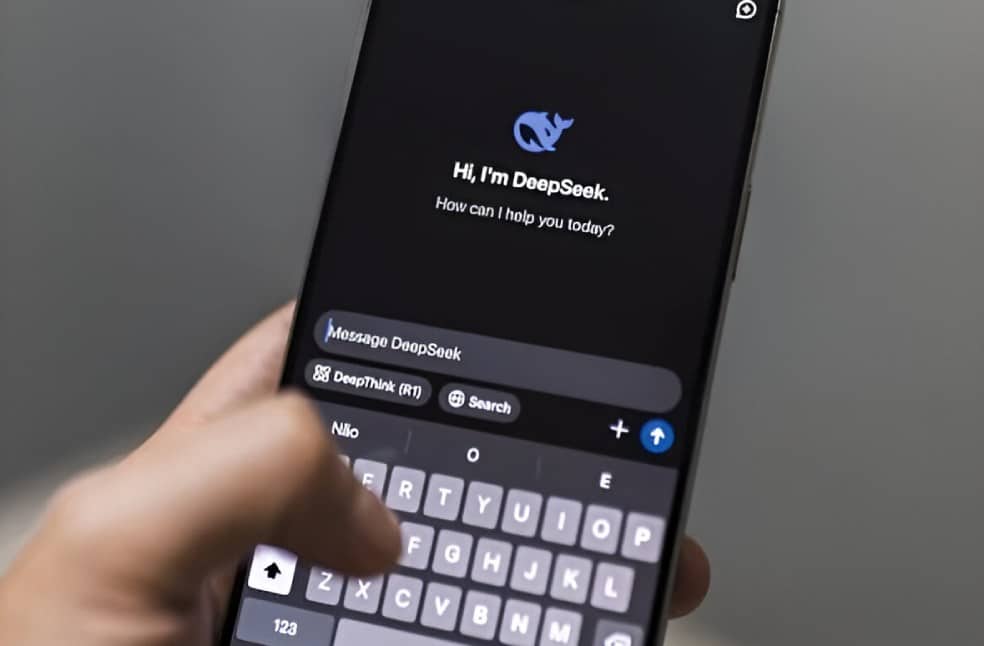South Korea Bans DeepSeek AI Chatbot Downloads

South Korea has taken a significant step by banning new downloads of the Chinese AI chatbot, DeepSeek. This decision comes from the country’s Personal Information Protection Commission, which oversees data privacy regulations. The agency stated that DeepSeek could return to app stores once it makes necessary improvements to comply with South Korean data protection laws. The ban follows a surge in DeepSeek’s popularity, which saw it quickly rise to the top of app stores with over a million weekly users. However, this rapid ascent also raised concerns about privacy and national security, prompting scrutiny from various countries.
Despite the ban on new downloads, users who already have DeepSeek installed on their devices can continue to use it. They can also access the chatbot through its official website. The situation reflects a growing trend among nations to regulate AI technologies, particularly those originating from China, due to fears over data security and potential misuse.
DeepSeek’s Rapid Rise and Subsequent Scrutiny
DeepSeek made headlines globally when it was launched at the end of last month. Its advanced capabilities and user-friendly interface quickly attracted attention, making it one of the most popular AI chatbots worldwide. In South Korea, the app gained over a million weekly users almost overnight. However, this rapid rise did not go unnoticed. Governments around the world began to scrutinize DeepSeek for potential privacy violations and national security risks.
In South Korea, several government agencies acted swiftly by banning their employees from downloading the chatbot on work devices. This move was part of a broader effort to safeguard sensitive information and maintain control over data privacy. The acting president of South Korea, Choi Sang-mok, described DeepSeek’s emergence as a “shock” that could have far-reaching implications for the country’s industries, extending beyond just AI technologies.
Other countries have also taken similar actions. For instance, Taiwan and Australia have prohibited DeepSeek from being used on government devices. Italy’s regulatory body has temporarily banned the app until it addresses concerns regarding its privacy policy. These actions highlight a growing global trend of caution towards AI applications, particularly those developed in China.
Global Reactions and Regulatory Actions
The global response to DeepSeek’s launch has been swift and decisive. Countries like the United States have proposed legislation to ban the chatbot from federal devices, citing surveillance concerns. At the state level, Texas, Virginia, and New York have already implemented similar restrictions for their employees. This trend reflects a broader apprehension about the implications of using AI technologies that may not adhere to stringent privacy standards.
DeepSeek’s advanced “large language model” (LLM) has raised eyebrows due to its reasoning capabilities, which are comparable to those of leading US models like OpenAI’s. However, DeepSeek reportedly requires significantly less investment to train and operate. This disparity has sparked discussions about the billions of dollars being poured into AI infrastructure in the United States and other countries. Critics argue that the rapid development of AI technologies in China could challenge the US’s leadership in the field.
As countries continue to grapple with the implications of AI, the case of DeepSeek serves as a cautionary tale. It underscores the need for robust regulatory frameworks to ensure that emerging technologies align with national security and privacy standards.
The Future of DeepSeek and AI Regulation
The future of DeepSeek remains uncertain as it navigates the regulatory landscape. The Personal Information Protection Commission in South Korea has indicated that the app could return to app stores once it implements necessary changes. This situation highlights the ongoing tension between technological innovation and regulatory compliance.
As AI technologies continue to evolve, governments worldwide will likely face similar challenges. The need for effective regulations that protect user data while fostering innovation is more critical than ever. Countries must strike a balance between encouraging technological advancement and safeguarding national interests.
The case of DeepSeek may set a precedent for how other AI applications are treated in the future. As more nations adopt stringent measures against foreign technologies, the landscape of AI development could shift dramatically. Companies developing AI solutions will need to prioritize compliance with local regulations to avoid similar bans.
Observer Voice is the one stop site for National, International news, Sports, Editor’s Choice, Art/culture contents, Quotes and much more. We also cover historical contents. Historical contents includes World History, Indian History, and what happened today. The website also covers Entertainment across the India and World.
Follow Us on Twitter, Instagram, Facebook, & LinkedIn

